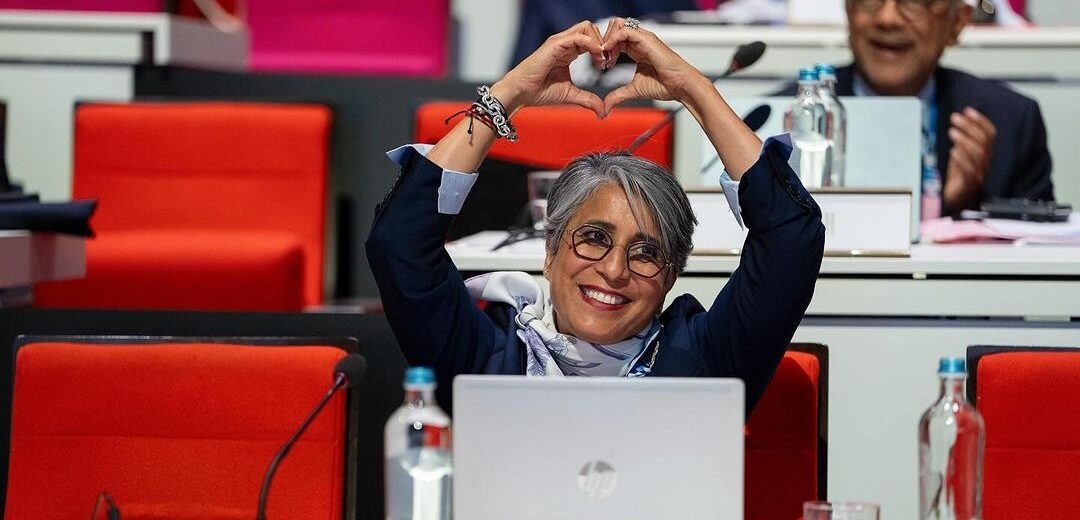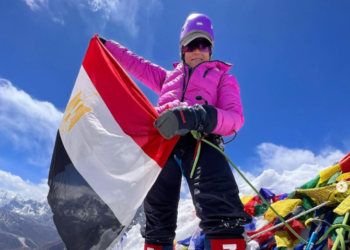In 1984, a roar erupted at the Los Angeles Coliseum as a young athlete sprinted toward history. Her legs blurred over the hurdles, each stride defying expectations. When she crossed the finish line, she didn’t just win gold—she shattered ceilings. Born in Casablanca and trained at Iowa State University, this pioneering athlete became the first Moroccan, Arab, African, and Muslim woman to claim Olympic glory in the women’s 400-meter hurdles.
Her journey began on dusty tracks in Morocco, where cultural norms often sidelined women in sports. Yet through relentless dedication, she transformed barriers into stepping stones. The 1984 victory wasn’t just a personal triumph—it ignited hope for countless girls worldwide. Today, her legacy stretches far beyond athletics, inspiring generations to chase dreams without limits.
From breaking records to breaking stereotypes, her story redefined what’s possible. As an influential public figure, she continues advocating for gender equality and youth empowerment. This is more than a tale of speed and medals—it’s a blueprint for courage.
Key Takeaways
- First woman from multiple backgrounds to win Olympic gold in the 400m hurdles.
- Overcame cultural barriers to become a global symbol of perseverance.
- Used her platform to champion women’s rights in sports and society.
- Proved that determination can turn societal challenges into opportunities.
- Legacy includes mentoring athletes and promoting inclusivity worldwide.
Early Life and Athletic Beginnings
From the vibrant markets of Morocco to the collegiate tracks of Iowa, her journey was anything but ordinary. Growing up in Casablanca, she discovered her love for running on sunbaked dirt paths. Though societal expectations often limited girls’ participation in sports, her family encouraged her passion. Their support became the spark that ignited a fiery determination.

Formative Years: Crossing Continents
At 19, she made a bold choice—to combine academics with elite training at Iowa State University. The move tested her resilience. Language barriers and Iowa’s harsh winters contrasted sharply with Morocco’s warmth. Yet the university’s world-class facilities allowed her to refine her technique in the 400 hurdles, a race demanding both speed and precision.
Breaking Ground on the Track
Early competitions brought unique challenges. As one of few female athletes in her country pursuing hurdles, she faced skepticism. “Why not choose something more… graceful?” critics asked. She answered by setting national records. Each victory silenced doubters and proved women could excel in demanding athletics disciplines.
By 1983, her relentless training produced remarkable results. She dominated regional meets, her stride patterns becoming textbook examples for aspiring athletes. These triumphs weren’t just personal—they reshaped perceptions of what Arab female competitors could achieve globally.
Olympic Triumph: The 1984 Los Angeles Breakthrough
August 8, 1984, marked a seismic shift in sports history. Under the blazing California sun, the women’s 400 hurdles final at the Olympic Games became a stage for rewriting narratives. Millions watched as the Moroccan hurdler exploded from the blocks, her strides slicing through decades of doubt.
Historic 400m Hurdles Victory and Record-Setting Performance
She dominated the race wire-to-wire, crossing the finish in 54.61 seconds—a personal best that secured the gold medal. This wasn’t just a win; it was the first time the event had been contested for women at the Games. “I felt wings on my feet,” she later reflected, describing how years of grueling training crystallized into perfection.
Celebration in Casablanca and Cultural Impact
Back in Morocco, crowds flooded Casablanca’s streets waving flags and chanting her name. The king issued a royal decree: every girl born that day would carry her name as a symbol of pride. “We saw our dreams in her victory,” recalled one spectator, tears streaming down his face.
The triumph transcended sport. Schools added athletics programs for girls, while newspapers hailed the moment as a turning point for women across the Arab world. Her race didn’t just break records—it dismantled stereotypes, proving that grit and grace could redefine a country’s identity overnight.
Nawal El Moutawakel’s Legacy and Influence
Breaking records was just the beginning. After retiring from competition, the Olympic champion shifted her focus to reshaping global sports governance. Her trailblazing spirit found new purpose in leadership roles that amplified opportunities for underrepresented athletes.
Pioneering Role for Women in Sports
As the first Muslim woman elected to the International Olympic Committee, she transformed policy-making tables into platforms for progress. She championed initiatives requiring host cities to prioritize gender equity in facilities and programming. “Sport is a universal language,” she often stated, “and it must speak for everyone.”

Impact as an IOC Member
Her work on evaluation commissions ensured future Olympic Games prioritized youth engagement and accessibility. Under her guidance, Morocco launched nationwide fitness campaigns encouraging girls to pursue athletics. Schools integrated sports into curricula, backed by her advocacy for physical education as a tool for empowerment.
Continuing Influence on Social Change
Beyond stadiums, she leveraged her status to address systemic barriers. Programs she endorsed provided scholarships for female athletes in developing nations. Her legacy lives in every girl who picks up a baton or clears a hurdle, knowing the path was paved by relentless courage.
From the 400 hurdles track to boardrooms, her journey proves victories aren’t confined to finish lines. Through policy reforms and grassroots activism, she continues redefining what leadership looks like in sports—and beyond.
Conclusion
Nawal El Moutawakel’s story transcends stopwatches and finish lines. What began as a young girl racing through Casablanca’s streets became a global movement for equality. The 1984 Los Angeles Olympic Games didn’t just award a gold medal—it ignited a revolution for women in athletics worldwide.
From that historic victory in the 400 hurdles, she reshaped sports governance as an Olympic Committee member. Her policies opened doors for female athletes at World Championships and grassroots programs alike. Barriers became bridges under her leadership.
Decades later, her impact echoes in every girl who clears a 400 hurdles barrier or challenges norms. She proved that country borders can’t limit dreams—and that true champions fight for others’ futures.
Her legacy isn’t just about breaking records. It’s about building a world where every woman can sprint toward her potential, unshackled by doubt. That’s the finish line worth chasing.
FAQ
What made Nawal El Moutawakel’s 1984 Olympic victory groundbreaking?
Her gold medal in the 400m hurdles marked the first Olympic win by a Muslim woman and the first for Morocco. It shattered stereotypes, proving women from diverse backgrounds could excel in athletics on the global stage.
How did her win impact sports participation in Morocco?
The triumph ignited national pride and inspired countless young athletes, especially girls, to pursue sports. Streets erupted in celebration, and her victory became a symbol of possibility for future generations.
What role did she play in the International Olympic Committee?
As a trailblazing IOC member, she championed gender equality, youth engagement, and ethical sports governance. Her leadership helped shape policies promoting inclusivity and accessibility in athletics worldwide.
Why is her Iowa State University experience significant?
Training under coach Ron Renko honed her discipline and technique, proving cross-cultural collaboration could elevate athletic potential. It laid the foundation for her historic Olympic performance.
How does her legacy continue to influence modern sports?
From mentoring athletes to advocating for social change, her journey underscores sports’ power to break barriers. She remains a global icon for perseverance and progress in and beyond athletics.






